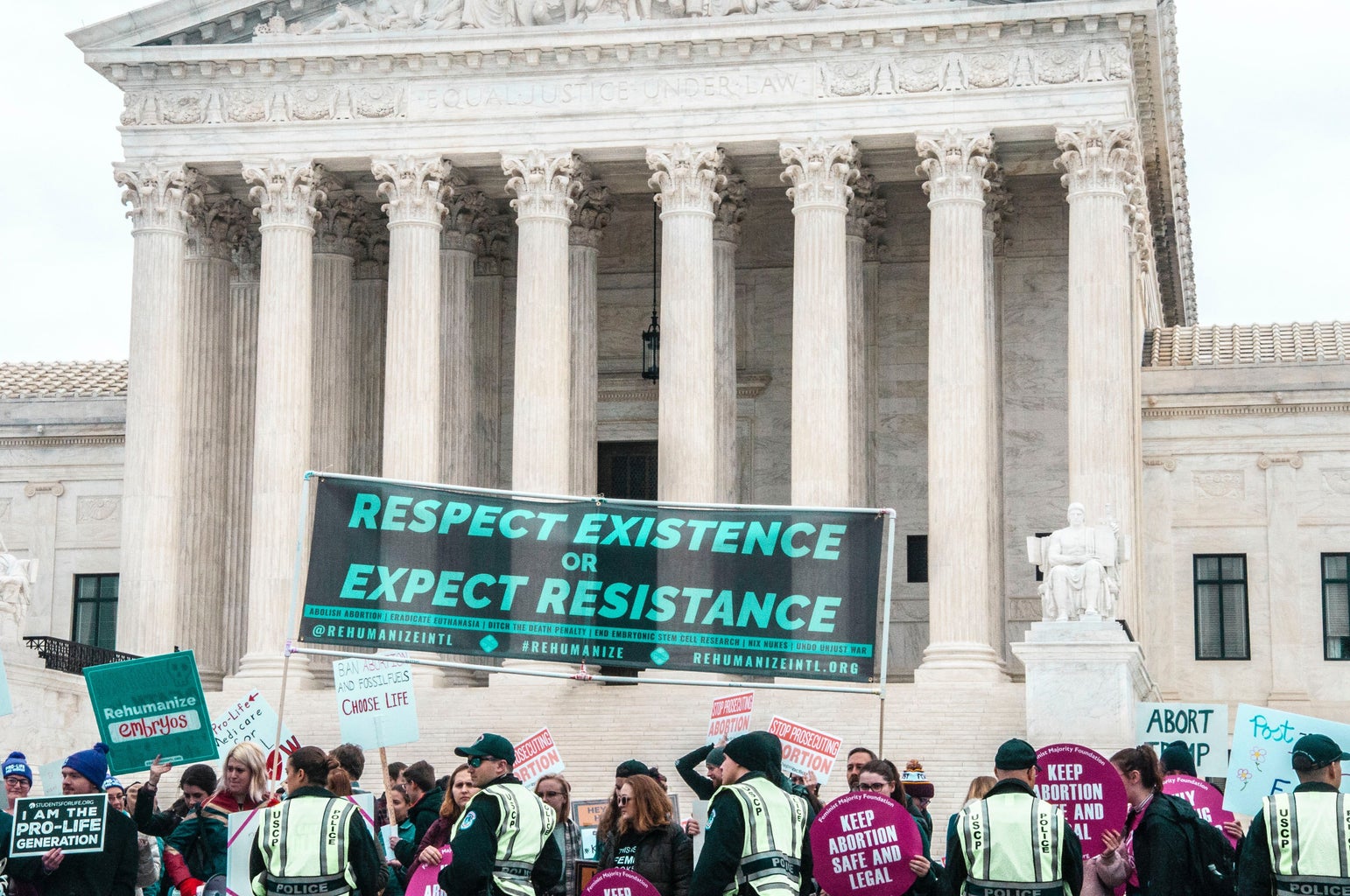On May 16th, Texas Governor Greg Abbott passed a law that prohibits abortions as early as six weeks. This new law that was put in place in Texas is just the most recent legal step that politicians have taken to politicize and restrict abortions.
History of Abortion Laws
Abortion first became a topic of political debate with the decision of the landmark Supreme Court case of Roe v. Wade in 1973. In 1970, a woman who identified herself as Jane Roe lived in Dallas County, Texas. At the time, there was a Texas law that banned abortions unless a doctor stated that the procedure was the only way to save the mother’s life. Roe filed a lawsuit against the district attorney of Dallas County named Henry Wade, stating that this law was unconstitutional. She claimed that it was in violation of a woman’s right to personal privacy through several amendments.
The Supreme Court agreed to hear the case and in a 7-2 decision, they agreed with Jane Roe that the Texas law banning abortion was unconstitutional. Justice Harry Blackmun delivered the opinion of the majority. In the opinion, he cited a person’s right to their privacy which is protected by the Due Process Clause of the Fourteenth Amendment.
The decision of Roe v. Wade impacted abortion laws in 46 states. Immediately following, many states changed their abortion laws to create safer access to abortions. However, states still have the opportunity to create laws to ban abortions after viability with the exception of protecting a mother’s life. Therefore, federally, Roe v. Wade set the precedent that abortion is legal and protected as a right to privacy, but states can still create legislation to discourage abortions. This is why we still see abortion debates in our politics today. Many traditionally conservative states continue to disagree with the ruling of Roe v. Wade.
One state in particular has gained massive attention for its recent legislation in regards to abortions. In May of 2021, Texas Governor Greg Abbott passed Texas Senate Bill 8, a law that prohibits abortions as early as six weeks. Specifically, the law requires physicians to check for a fetal heartbeat using tests that are in good faith and appropriate for the estimated gestational period. If a fetal heartbeat is detected, which can occur as early as six weeks, the woman may not receive an abortion. If she still decides to pursue getting an abortion, there are further repercussions.
Another part of the law allows private citizens to take legal action against abortion providers and others who aide a woman in getting an abortion. A doctor providing abortions could be sued, Uber drivers transporting women to get abortions could be sued, and people helping to fund a woman’s abortion could be sued. These people can be sued for a minimum of $10,000. However, the law states that the women themselves cannot be sued for obtaining the service. In addition to the many people who are now at risk for lawsuits, the Texas law does not make exceptions for women who conceived a child through rape or incest. Therefore, abortions are so fiscally discouraged that they are functionally prohibited in the state of Texas.
How both sides of the aisle view texas senate bill 8
Liberals and progressives, who are typically pro-choice, are infuriated by the new Texas law. This side views the new law as an infringement on the precedent of Roe v. Wade. The Biden Administration, as well as other leaders in the Democratic Party, have been trying for months to find creative ways to block the law from going into effect. The Supreme Court moved some agenda items around on their docket to make room to hear the arguments and vote on whether or not to block the Texas law, and in a 5-4 decision, it was decided that the Texas law could go into effect on September 1, 2021. John Elwood, a Washington D.C. lawyer, expressed his disdain for the swiftness of the decision, stating that it was the “most expedited briefing and argument since Bush v. Gore.” Progressive Justice Sonia Sotomayor was part of the Court’s 5-4 minority and stated that the law is “flagrantly unconstitutional” and that “Because of the Court’s failure to act… relief, if it comes, will be too late for many.”
On the other side of the aisle, conservatives, who are typically pro-life, are rejoicing at the passing of the Texas bill. For years now, this side has attempted to pass legislation that discourages abortions; however, the courts have blocked them, finding them unconstitutional. They argue that Jane Roe herself, now known to the public as Norma McCorvey, has even advocated for the reversal of her historic Supreme Court case. McCorvey has publicly stated that she wants her case to be overturned as she now believes that abortions cause more harm to women than good. Kristan Hawkins, president of Students for Life of America and contributor for USAToday writes that, “Texas’ proud history is stained by its role in the devastating legacy of Roe v. Wade, but the future is anti-abortion.” Other people who are pro-life are excited about the vast impact that this new law will have and hope that it will demonstrate to others the value of human life and that it shouldn’t be taken away so quickly.
What happens next
While Democratic leaders are still finding ways to fight Texas legislators on Texas Senate Bill 8, in the meantime, the passing of the bill could encourage other conservative states to pass similar legislation. In 2018, Mississippi took steps to passing a bill that would ban almost all abortions after 15 weeks of pregnancy. The case, which has been brought to the highest court, has been labeled Dobbs v. Jackson Women’s Health. The Supreme Court is set to hear the oral arguments for the case on December 1, 2021. Since the Supreme Court has a conservative majority, and the Court recently failed to block the Texas law, it is foreshadowed that this Mississippi law could go into effect. Once a few states get this momentum, it wouldn’t be surprising if others follow suit. However, it should be noted that women are doing their best to support women facing abortion challenges in these states. Women from states where abortion laws are less strict have offered up their homes and their time to assist women in getting the care that they need. Many fear that if additional support isn’t provided by women in other states, women in states such as Texas may resort to unsafe means of having abortions.
For now, some wait in fear, while others celebrate in triumph. However, the American public as a whole will wait patiently to see what the highest ranking legislative, executive, and judicial officials will do about Texas Senate Bill 8.




